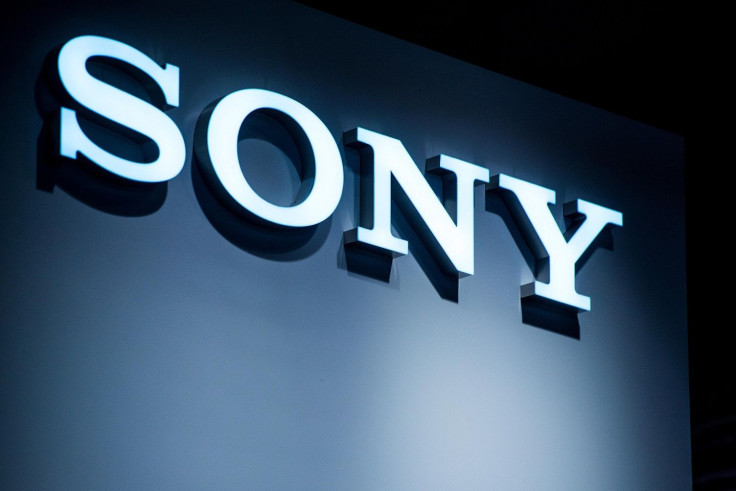Sony Hack Offers Rare Glimpse Into Hollywood's Backrooms As EU Watchdogs Probe Pay-TV Deals

Europe’s antitrust officials want to know more about how Hollywood does business, and these days they have an unprecedented research tool at their disposal: a massive dump of private Sony documents, courtesy of hackers with possible ties to North Korea.
Last week, the European Commission stepped up its wide-reaching inquiry into the entertainment industry, issuing a “statement of objections” to six U.S. Hollywood studios, and a British pay-TV operator, alleging that they have been illegally restricting access to content for consumers who travel to different territories within the EU. A resident of the UK, for instance, might find his or her movies and TV shows blocked when vacationing in Rome. The objections, which are a list of formal charges, are part of an ongoing investigation into whether the studios’ distribution contracts contain clauses that stifle cross-border competition. If the studios aren’t able to justify the territorial restrictions, they may face fines of up to 10 percent of their global annual sales.
“The Commission’s preliminary conclusion is that, in the absence of convincing justification, the clauses would constitute a serious violation of EU rules that prohibit anticompetitive agreements,” the commission said in a statement.
Even under normal circumstances, such a high-stakes probe into studio dealings would give executives cause for concern, but when one of those studios is Sony Pictures Entertainment, whose emails and documents were made public last year as part of a sweeping cyberattack against the company, it might be time for an all-out panic.

When A Studio Is An Open Book
Whether it wanted to or not, Sony has provided a rare glimpse into its innermost secrets, and by extension the intricacies of Hollywood deal-making. The leaked information, posted online and placed into a comprehensive searchable database by WikiLeaks, includes not just Amy Pascal’s trademark eviscerations of A-list talent, but also sensitive licensing contracts -- possibly some of the very contracts and documents at issue in the current investigation underway in Europe.
The European Commission, legal experts say, has very strong investigatory powers, and regulators can legally require companies to produce any document relevant to a probe. But they have to know what they’re looking for, and companies often do what they can to resist.
“The process can give rise to friction from the companies under investigation,” said Alan Davis, an antitrust lawyer with Jones Day in London. “What they might do is try to resist the disclosure of documents on the basis that certain documents are not relevant.”
He added, “They might say, ‘Look, you can’t just go on a fishing expedition here. You have to have ask for specific documents that will be relevant to the breaches of competition law that you’re accusing us of.’”
Except in Sony’s case, you can go on a fishing expedition. Much of the information the European Commission would have sought, or may want in the future, may now be available online for all to see. It’s even possible to search the WikiLeaks database to see how the studio dealt internally with the commission’s investigation, which was first opened in January 2014. For instance, when Sony received the commission’s official “request for information,” in April 2014, one lawyer representing the studio called the level of detail sought “eye-opening” in an email to the Sony legal team.
“I suspect some of the questions as a result will be very difficult to answer,” he wrote.
Another email, sent in October 2014, described a conference call between legal counsels for the different studios in which some participants apparently doubted whether there was good evidence to justify the territorial restrictions in their contracts. Communications such as those, because they contain outside counsel from lawyers who practice in the EU, may be covered by legal privilege and therefore outside the European Commission’s traditional reach.
All of which raises the question of whether European regulators, in light of the Sony hack, are now simply helping themselves to Sony’s leaked documents and emails. A spokeswoman for the commission declined to say, but she noted that, as a general rule, regulators can and do make use information made public in media.
“They can say, well, those documents are all in the public domain,” Davis added.
A Sony representative did not respond to multiple requests for comment about the EU investigation or whether its leaked documents leave it vulnerable. In the past, the studio has refused to comment on stories related to its hacked documents on the basis that the information gleaned therein is stolen. A lawyer for the studio has even threatened to sue media outlets that publish leaked information.
The Sony hack first came to light in November 2014 as the studio was readying the release of the Seth Rogen comedy “The Interview.” Although U.S. officials said the attack was carried out by North Korea, Pyongyang has denied any role.
Contracts Are Proprietary
Last week’s statement of objections concerned six studios: Sony, Disney, Warner Bros., Paramount, NBCUniversal and Twentieth Century Fox, along with the pay-TV provider Sky UK. The commission continues to study cross-border access for customers of other European pay-TV providers as well.
Of the studios named, Disney has come out the strongest against the objections. “The impact of the commission’s analysis is destructive of consumer value, and we will oppose the proposed action vigorously,” the company said in a statement.
Distribution agreements are among the most closely guarded secrets in media, and sometimes even government agencies have trouble prying them from studio hands. Last year, when the Federal Communications Commission sought distribution contracts as part of its review of the AT&T-DirecTV merger, broadcasters -- including the Walt Disney Company and CBS Corp. -- sued on the grounds that exposing their sensitive documents to third parties would leave them vulnerable to competitors. After a months-long legal battle, the courts agreed.
In the United States, like in the EU, restrictive distribution agreements between media companies and pay-TV providers are thought to create barriers to competition and innovation. For example, clauses requiring content owners to offer the lowest possible deal to pay-TV providers, known as “most favored nation” provisions, have been criticized for stifling the deployment of online TV. But because the contracts are not made public, it’s been difficult to see exactly how such clauses were worded.
That’s less true since WikiLeaks published more than 30,000 Sony documents. For Sony, and for Hollywood’s desire for secrecy, the hack is the sting that keeps on stinging.
Christopher Zara is a senior writer who covers media and culture. Follow me on Twitter @christopherzara .
© Copyright IBTimes 2024. All rights reserved.












